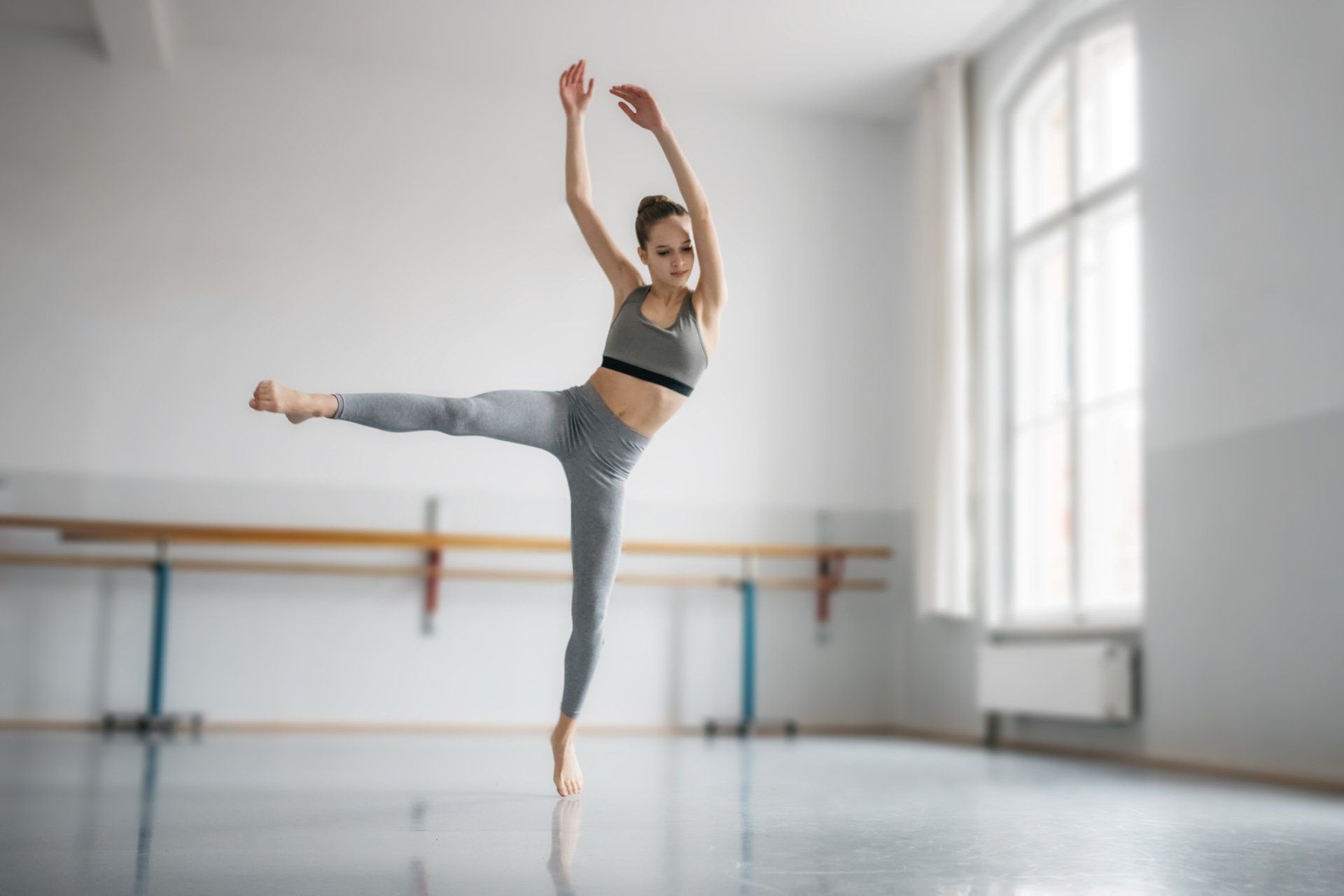Qualified Dance Physiotherapists in Wetherill Park
Pre-pointe Assessments
What is a Pre-Pointe Assessment?
The Pre-Pointe assessment is designed to help your child optimally prepare for pointe work. Our Physiotherapists have extensive experience in determining their readiness for pointe and are able to effectively diagnose their biomechanical faults. This includes assessing point range, foot control, turnout range, intrinsic muscle control, pelvic stability and core control during basic ballet steps.
Why are Pre-Pointe Assessments so important?
It is imperative your child establishes correct biomechanics and technique at a young age to prevent long-term problems with their body. Common dance injuries include Hip labral tears and impingement, Achilles pain, Bursitis, Ankle impingement, Patellofemoral pain and Stress fractures.
What happens after a Pre-Pointe Assessment?
Following the assessment, your dance teacher will receive a detailed report outlining your strengths/weaknesses and whether you are ready for the transition to pointe work. If your child is not cleared, an individualised exercise program and treatment techniques will be specifically tailored to accelerate their journey to beginning pointe work. Dependant on their needs and current level of training, they may require follow-up appointments to reassess and progress their program
Click here for more information >>
What is Dance Physiotherapy?
Dancers, performers and gymnasts all sustain different injuries that need specific treatments, enabling them to get back on their feet as soon as possible. Professionals skilled in dance physiotherapy can provide this service effectively.
The majority of dance-related injuries occur in the lower extremities and the lower back, which can cause a tremendous amount of pain and discomfort.
These injuries must be diagnosed accurately and on time to enable a full recovery.
Expert Physiotherapy in St John’s Park for Every Stage of Recovery
At JQ Physiotherapy and Sports Rehabilitation, we are proud to provide trusted physiotherapy in St John’s Park for individuals of all ages and conditions. Whether you’re managing ongoing pain, recovering from a sports injury, or looking to regain strength after surgery, our experienced team is here to help. Every treatment plan is tailored to your needs so you can move better, recover faster, and return to the activities you love. If you’re ready to take the next step towards recovery,
contact us today and book your appointment.
Personalised Care That Puts You First
No two injuries or conditions are the same, which is why our physiotherapy in St John’s Park focuses on personalised care. We begin with a detailed assessment to understand your situation, then design a treatment plan that targets your goals. From hands-on manual therapy to exercise programmes and education on preventing re-injury, our approach ensures long-lasting results. With ongoing support and guidance, you’ll feel confident every step of the way.
The Benefits of Local Physiotherapy Support
Having access to professional physiotherapy in St John’s Park means you don’t have to travel far for expert care. Our clinic uses evidence-based treatments to not only relieve pain but also improve mobility, strength, and overall wellbeing. By working with us, you gain a dedicated team committed to helping you stay active, independent, and healthy.
How Does It Benefit You?
Dance physiotherapy targets two main areas of service: injury prevention and screening of dancers to diagnose issues proactively.
The second is the treatment of existing injuries and the rehabilitation process to normalcy.
The proactive screening process enables our professional team to diagnose existing problems and recommend an effective treatment plan. The results are used to set up a suitable training program, allowing the dancers to perform to their best capacity.
How We Can Help
Our skilled therapists will assess your condition and:
- provide recommendations for effective warm-up, stretching and cool-down techniques
- perform pre-pointe assessments
- advise on the best management of your injury
- inform on how to prevent further injuries
- provide recommendations to improve your dance technique







